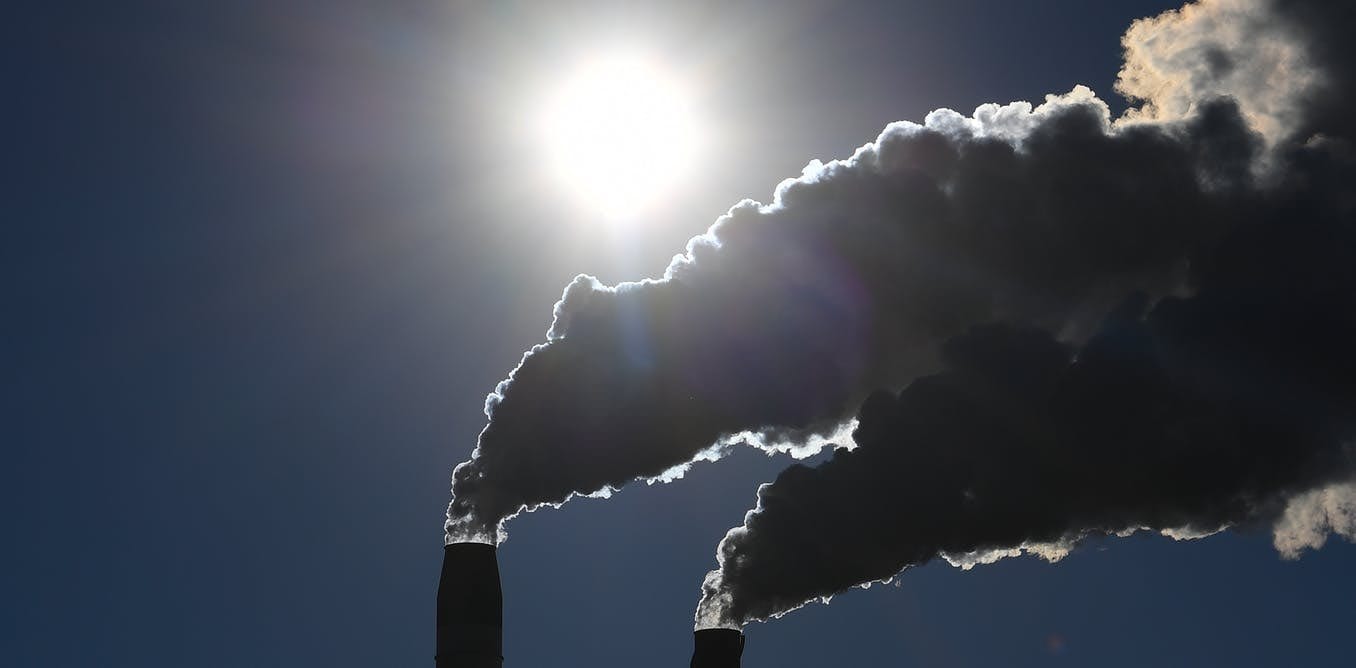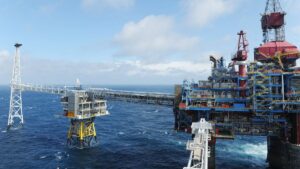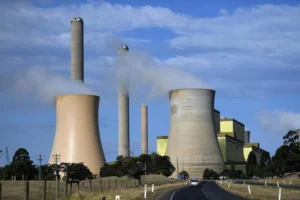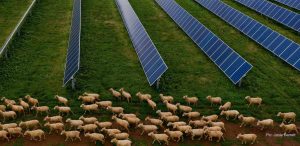Increasing leadership from local governments and cities on renewable energy transitions and building for a carbon free future is bringing hope to the world.
For example, Australia’s Climate Council’s Cities Power Partnership (https://www.climatecouncil.org.au/category/cities-power-partnership/) supports nearly 100 member Councils across 250 towns and cities, and over 8 million residents, to accelerate renewable energy transitions.
States are also embracing renewable energy developments. South Australia has been punching above its weight in Australia’s success with solar batteries and Port Augusta’s transformation from coal to concentrated solar powerhouse underway.
That’s good news for South Australians who already experience searing heat waves, wild storms and exceptionally dry conditions http://www.bom.gov.au/climate/drought/ but disappointing steps are underway due to failure of the State Planning Commission to recognise their obligations to mitigate climate change.
In many areas, new housing subdivisions have gas infrastructure laid first, using rules that properly apply to essential services like footpaths, roads, sewerage and water. The situation in Mount Barker, a growing town 36km from Adelaide, goes even further.
Several large housing developments face mandated connection to gas within their housing contracts. The Australian Gas Network’s business case https://www.aer.gov.au/system/files/2018.07.30_Mount%20Barker%20Extension_Business%20Case_PUBLIC.pdf for a new gas pipeline to Mount Barker states:
….gas appliances also provide customers with the lowest cost option of reducing carbon emissions relative to other solutions.
Solar power and storage is clearly superior environmentally, but was not considered in comparisons they made.
The extract below is quoted from the “Design Guidelines” published by the developers of the “Springlake Estate” in Mount Barker. These form part of a Memorandum of Encumbrancewhich is registered on the Certificate of Title.
Gas Connection
Springlake is providing reticulated LPG throughout the development. A gas connection will be provided to the front of each allotment. It is mandatory that each house connects to the LPG system.
Minimum gas connection requirement; gas heating; gas hot water service.
Note; if you will be connecting a solar hot water system, a gas boosted system will be required.
The acceptance of these proposals is costly for householders and is contrary to the national interest of climate change abatement. It is also anti-choice and anti-competitive, especially as the cost of solar energy and storage is falling fast.
Greenhouse gas implications of gas
The national and many Australian state governments, both LNP and ALP, have embraced large gas expansion for export and domestic use. This goes against advice from the IPCC (2018) https://www.ipcc.ch/site/assets/uploads/sites/2/2018/11/SR15_Chapter2_Low_Res.pdf
which urges levelling of gas use by 2020 followed by steep falls in subsequent years. It is assumed that rich, developed countries will quit gas earlier than developing countries can.
However, while a moratorium on fracking for the SE of the state was recently passed by the South Australian Parliament, conventional gas mining is booming in the state’s northeast.
The gas industry has long claimed that gas expansion is good for the climate, but neglects to mention that all fossil fuels, including gas, emit far more carbon than solar, wind and other renewable energy sources.
According to AGN “The cleanest burning of all fossil fuels, natural gas produces the least amount of carbon dioxide – a major cause of the enhanced greenhouse effect” https://www.australiangasnetworks.com.au/gas-explained/about-natural-gas
While correct on direct emissions from burning gas in the household, the reality is that the ‘emissions advantage’ diminishes when the carbon intensive footprint of gas production and the potent fugitive methane emissions that escape during production and transport are considered.
See https://energy.unimelb.edu.au/__data/assets/pdf_file/0019/2136223/MEI-Review-of-Methane-Emissions-26-October-2016.pdf. Federal government reporting of these fugitive emissions are likely to be underestimated.
Nationally, there is building evidence that natural gas mining is significantly increasing greenhouse gas emissions. As reported in an extensive review of the health impactsof gas mining, https://www.dea.org.au/wp-content/uploads/2018/12/DEA-Oil-and-Gas-final-28-11-18.pdf
“The National Pollutant Inventory figures from Queensland, the only Australian state with a well established unconventional gas mining industry, suggested that Queensland emitted 29% of Australia’s total emissions in 2016; with fugitive emissions from gas fields being among the top 5 sources of emissions and steadily increasing”.
Furthermore “The March 2018 Quarterly report on Australia’s National Greenhouse Gas inventory suggested that national fugitive emissions from gas and crude oil production more than doubled in just four years, from 4 megatons of CO2 equivalents in 2014 to approximately 9 megatons of CO2 equivalents in 2018, surpassing emissions from coal mining”.
Climate Analytics found that, between 2015 and 2020, the emissions growth from LNG (liquefied natural gas) will effectively wipe outthe carbon emissions saved by the 23% renewable energy target. https://www.theguardian.com/environment/2018/nov/13/problem-in-waiting-why-natural-gas-will-wipe-out-australias-emissions-gains
Internationally, the recent IPCC report https://www.ipcc.ch/sr15/ states that even if we accept current emissions of gas to be less than that of coal, a transition from coal to gas is insufficient to avoid exceeding the 1.5 or 2° C carbon budget. Sharp reductions in gas production are imperative, particularly because of the extreme potency of methane in capturing atmospheric heat in the short term, so immediate reductions could help slow rising global temperatures.
Currently Australia’s share of the remaining global carbon budget to avoid 2°C of warming is about 5.5 GtCO2e. Climate Analytics, estimated that full exploitation of the Western Australia’s gas reserves for domestic use and LNG exports would emit 36.4 GtCO2e https://climateanalytics.org/publications/2018/western-australias-gas-gamble/. This potential equates to six times Australia’s carbon budget and 4.7%-6.4% of the total global carbon budget under the Paris Agreement.
The Adani coal mine’s cumulative emissionsover its 60-year life, while highly significant, pale in comparison at 4.49 or 4.64 GtCO2-e http://envlaw.com.au/wp-content/uploads/carmichael14.pdf or around 0.5% of the global carbon budget.
Gas appliances can significantly worsen indoor air quality
Avoiding indoor gas burning also has health advantages. Increased rates of respiratory disease have been reported in childrenfrom US households with gas cookers without adequate ventilation.
https://ehjournal.biomedcentral.com/articles/10.1186/1476-069X-13-71. This research estimated that over half of US households have unhealthy levels of indoor air pollutants, such asoxides of nitrogen, carbon monoxide and formaldehyde as well as particulate matter emitted during high temperature cooking. https://ehp.niehs.nih.gov/doi/full/10.1289/ehp.122-A27
Whilst good ventilation and filtration can reduce pollutant levels in the home, these extra systems add cost and are not always installed.
Rooftop solar systems combined with energy efficient electric induction stoves and heating and cooling appliances cause no indoor pollution concerns.
The position of the gas industry and consumers
There is a persistent public perception fostered by industry that gas supplies are insufficient for Australian industry and more domestic mining is required to meet need. Yet, as we observe in places like Mount Barker, mandatory measures are forcing homeowners in new housing estates to depend on gas. This appears contradictory and requires explanation.
Public grasp of the serious health and environmental implications of climate change appear more realistic than those of governments.
Buyers may avoid mandatory gas supplied housing on ethical and financial grounds. There is so much that can be done – as the Cities Powers Partnership is demonstrating – to benefit from falling costs of producing and storing free wind and solar energy.
A recent reviewof the scientific literature https://www.dea.org.au/wp-content/uploads/2018/12/DEA-Oil-and-Gas-final-28-11-18.pdf reveals substantial increases in evidence of local, regional, national and international health risks and impacts of gas mining.
As a result Doctors for the Environment Australia’s Positionhttps://www.dea.org.au/wp-content/uploads/2019/01/DEA-Position-statement-on-onshore-oil-and-gas-mining-and-human-health-final-12-18.pdfis to oppose new gas mining developments and to request comprehensive monitoring, management and enforcement of environmental health and safety requirements, including full capture of greenhouse gases at all existing wells, pipelines and other infrastructure.
Dr David Shearman AM FRACP is Hon Advisor to Doctors for the Environment Australiawww.dea.org.auand Emeritus Professor of Medicine at Adelaide University.
Dr Melissa Haswell, Professor, Health, Safety and Environment, School of Public Health and Social Work, Queensland University of Technology and Member of Doctors for the Environment Australia.










